Shlomit Nir Tor was barely 20 years old at the time, and already participating in her second Olympic games. She was one of two women in the Israeli delegation to the 1972 Munich Olympics, along with sprinter Esther Roth.
"It was the first time I went to Germany, although my mother was born in Dortmund. But she came to Israel just before the war, while her parents were killed during the Holocaust,” Nir said.
6 View gallery
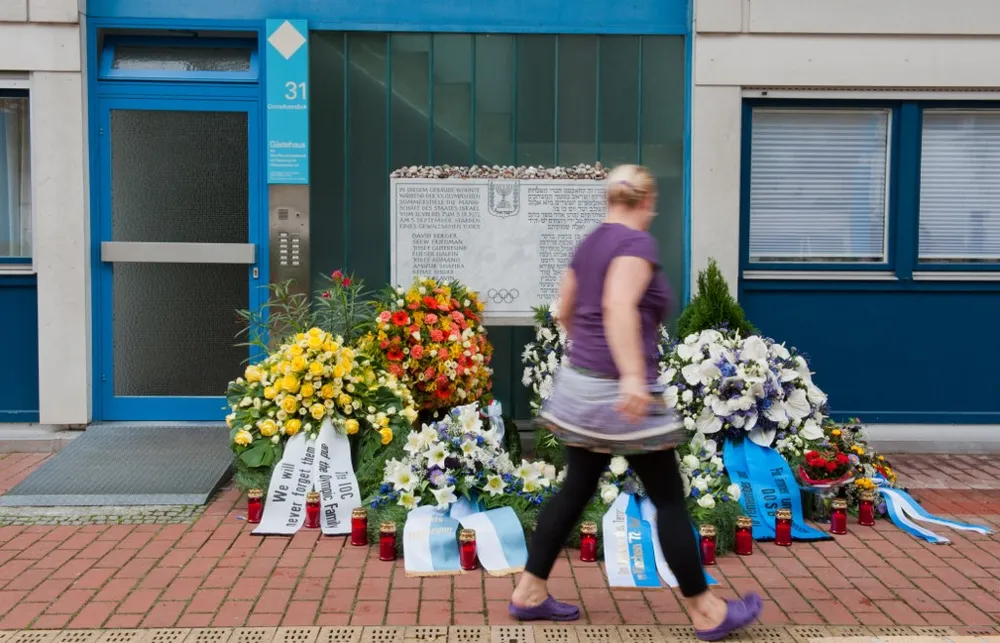

A woman passes by the commemoration plate for victims of the 1972 Munich Olympics massacre in front of the house in Connollystrasse 31, where the Israeli team stayed during the Olympic Games in Munich, southern Germany, on September 5, 2012
(Photo: PETER KNEFFEL / DPA / AFP)
“So going to Munich was very special. We could feel that the Germans wanted to show the world that Germany had changed.”
The Israeli delegation comprised 22 people - athletes, coaches, and referees. They were accommodated at the rear of the Olympic village. In those days, they were not accompanied by Israeli security personnel or Germans for that matter.
"Nobody had imagined that something would happen," Nir noted.
In the second week of the games, at dawn on September 5, eight terrorists from the Palestinian Black September group entered the laxly-guarded Olympic village and headed directly for Connollystrasse, where the Israeli delegation was quartered.
6 View gallery
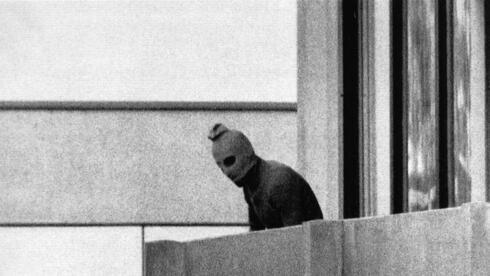

A Palestinian terrorist during the attack on Israeli athletes at the 1972 Munich Olympics
(Photo: AP)
They burst into one of the apartments housing Israelis and forced one to lead them to another apartment housing other Israelis. Two Israelis were killed in the initial assault, nine others were taken hostage.
"When I woke up that morning, I came out of my room, and I saw the cleaning lady waving to me and asking me to come and see through the window. She didn't speak English very well, but she said ‘terror,’ and that's how I knew something was up," Nir said.
The two female Israeli athletes, who were not in the same building as the men, watched helplessly from their bedroom window.
The terrorists demanded the release of 234 Palestinian prisoners held in Israeli jails, in exchange for the lives of the nine sportsmen they held. After a tense day of negotiations and stand-off, German authorities agreed to let the terrorists fly out with their hostages. After initially agreeing to be flown by helicopter to a nearby NATO airbase, the terrorists demanded they and their hostages be transported by bus.
"Israel had offered to help Germany to try to solve the problem, but the Germans did not want to. They replied that they could handle it alone," Nir continued.
6 View gallery
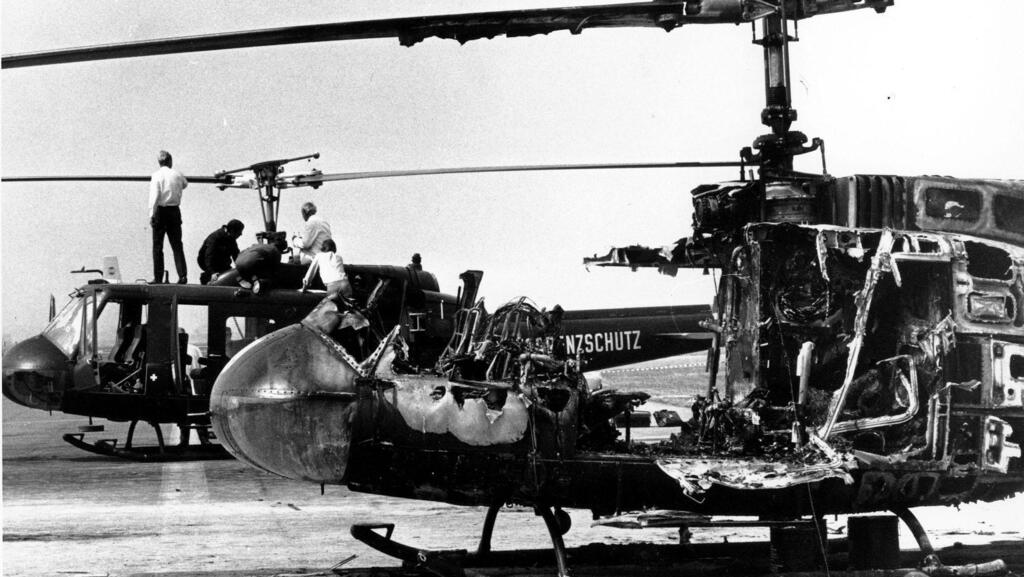

Burned-out army helicopter at Fürstenfeldbruck Air Base, after the failed attempt to free the Israeli hostages taken during the 1972 Olympics
(Photo: AFP)
The Germans planned to ambush the terrorists at the airport and free the hostages. But the ambush plan was badly conceived and even more badly implemented.
"Very amateurish," was how one Israeli athlete, not taken hostage, described it years later. Others have been far more scathing.
In the firefight at the airport, all nine Israeli hostages were killed, along with five of the terrorists and a German policeman.
"The other nine Israelis were killed just like that. Wow. It was terrible, terrible, terrible to hear that. The next day there was a commemoration at 12 o'clock in the stadium where the opening ceremony had taken place," Nir aid.
After one minute of silence and a few speeches, the games resumed.
"The most shattering thing for us was that after this ceremony, the games continued as if nothing had happened. How was this possible? We had just lost 11 members of our delegation,” she continued.
“I was very angry."
6 View gallery
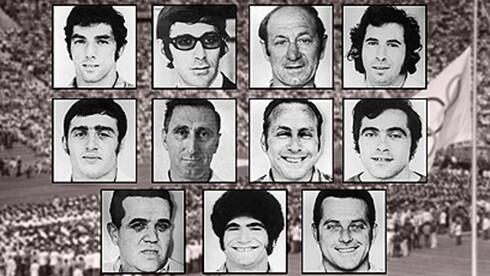

The 11 Israeli athletes massacred by Palestinian terrorists at the 1972 Olympic Games in Munich
(Photo: Getty Images)
The surviving Israeli delegation left Munich the next day, accompanied by 11 coffins. They arrived in a shocked and subdued Israel.
"When I arrived at the airport to receive Yossi's body, that's when I realized that 11 members of the delegation had been killed, the Germans were not even able to save one of them," said Ilana Romano, whose weightlifter husband Yosef tried to fight the terrorists as they seized their hostages, and was killed.
"Germany made me a widow at 26 with three small children. Who would have thought that this would be my fate? It's not fair."
6 View gallery
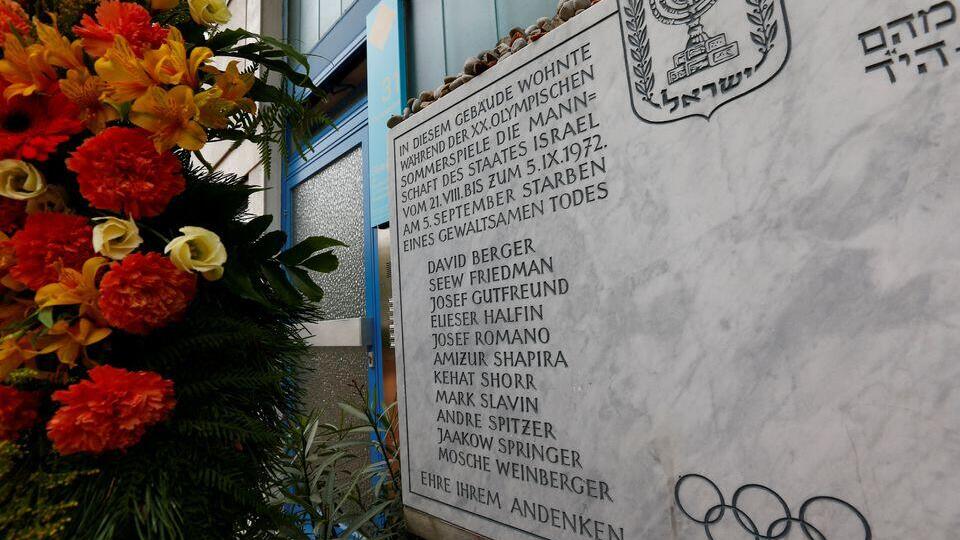

House where eleven members of the Israeli Olympic team were kidnapped and then killed by the radical Palestinian group Black September
(Photo: Reuters)
Ilana Romano is at the forefront of the battle that the victims' families have fought against the German authorities. She believes they never took enough responsibility for what went wrong. There were, she said, serious failures on the part of the German security services before, during, and after the bloody hostage-taking.
"Three weeks before the beginning of the Olympic Games, Germany had received information from Lebanon that an attack could take place but did nothing about it. At the airport, after the failed rescue operation, the German Minister of the Interior, (Hans-Dietrich) Genscher, who was on the premises, immediately told everyone not to take responsibility, and that the Germans were not guilty," she maintained.
6 View gallery
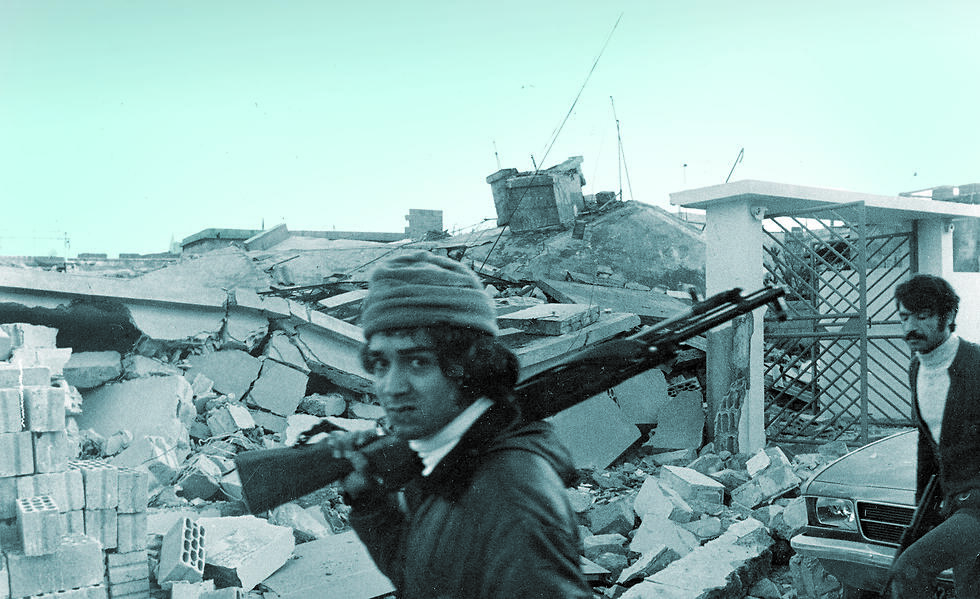

Aftermath of Israeli raid on Black September group in Beirut in 1973 in retaliation for the Munich massacre
(Photo: AP)
"The representative of the German police even added that it was the Israelis who imported their war into Germany. What a nerve."
The families of the 11 Israeli victims have waged a long battle with Germany over compensation and threatened to boycott the official 50th-anniversary commemoration. An agreement was reached late last month, under which Germany agreed to significantly increase the amount it will pay the families. As a result, the families will take part in the commemoration events in Munich on September 5.
"For 50 years, Germany has not respected us, and the Germans have been lying to us. Today they claim to want to take their responsibility, but I am waiting to see," Romano noted.
"They also want to set up a commission of inquiry, but where were they for 50 years?"

